

On October 23, 2025, "Recommendations of the Central Committee of the Communist Party of China for Formulating the 15th Five-Year Plan for National Economic and Social Development" was adopted at the Fourth Plenary Session of the 20th Central Committee of the Communist Party of China.
The recommendations are based on an in-depth analysis of the international and domestic landscapes. The ninth chapter emphasizes refining the regional economic layout and promoting coordinated regional development. The main points are outlined below.
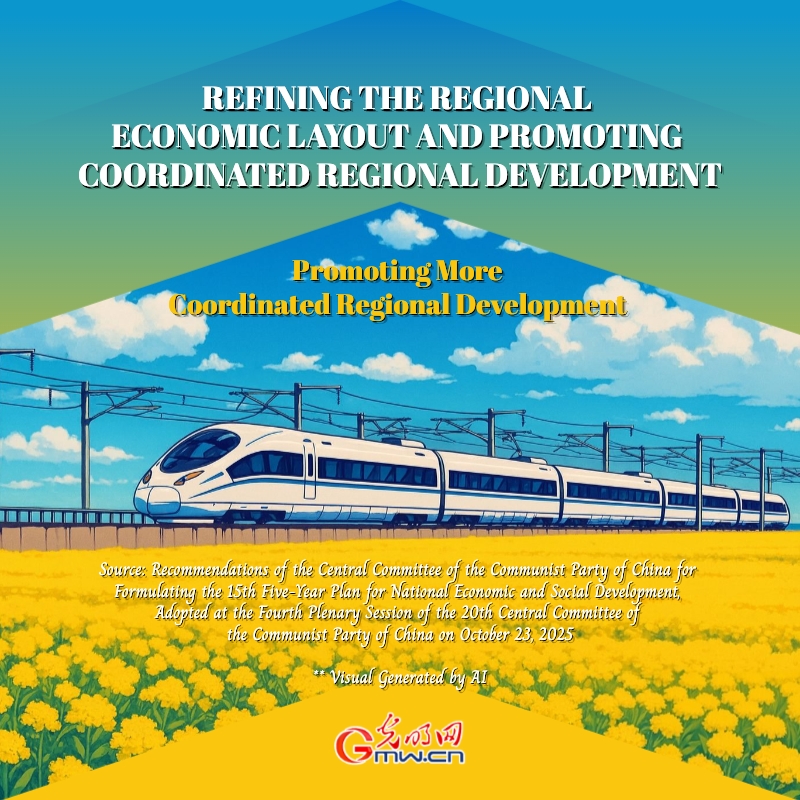
-- Promoting more coordinated regional development
We should take solid steps to open up a new vista in the large-scale development of the western region, achieve new breakthroughs in the full revitalization of the Northeast, accelerate the rise of the central region, and encourage the eastern region to modernize more quickly. We should promote more coordinated development between the eastern, central, and western regions and between the southern and northern regions.
We should consolidate and enhance the roles of the Beijing-Tianjin-Hebei region, the Yangtze River Delta, and the Guangdong-Hong Kong-Macao Greater Bay Area as engines of high-quality development. We should continue to advance the development of the Yangtze Economic Belt and ecological conservation and high-quality development in the Yellow River basin. We should build Xiong’an New Area into a modern city through high-standard, high-quality development and boost the development capacity of the Chengdu-Chongqing economic zone.
We should encourage all regions to leverage their comparative advantages and distinctive strengths. We should support major provincial economies in assuming greater responsibility and encourage them to play a leading, exemplary role in advancing Chinese modernization. We should strengthen tailored policy support to promote the revitalization and development of old revolutionary base areas, areas with large ethnic minority populations, and border areas.
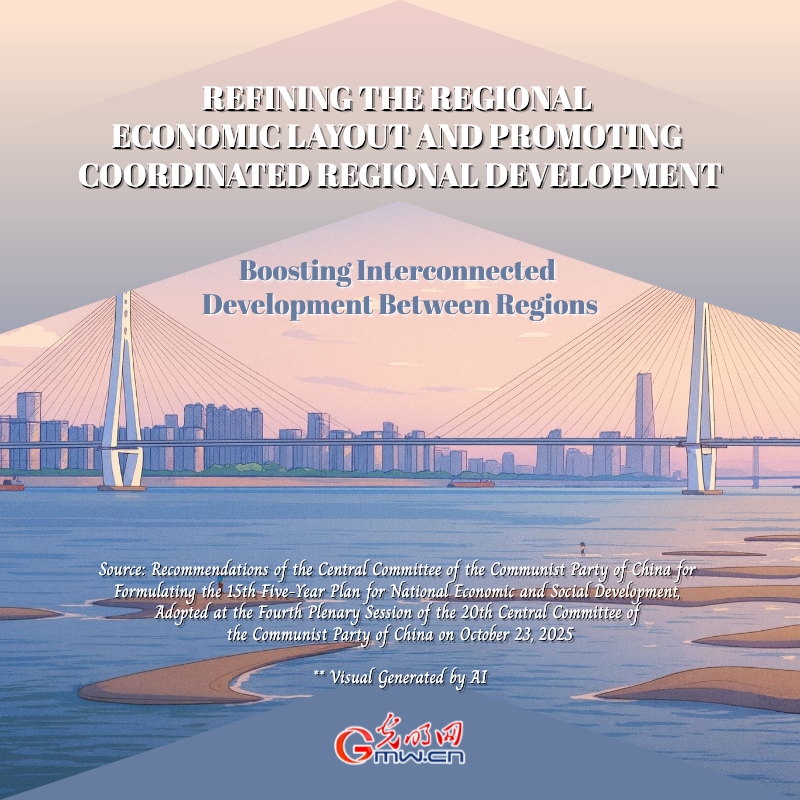
-- Boosting interconnected development between regions
We should advance the construction of major corridors between regions and across river basins and strengthen regional infrastructure connectivity. We should push forward with the coordinated and interconnected development of key city clusters and promote more efficient regional collaboration in industrial and innovation chains.
We should accelerate the development of city clusters along the middle reaches of the Yangtze River and in other areas, develop a number of major cities as regional centers, and give better play to the role of cross-regional areas in supporting and driving the development of surrounding regions. We should increase cooperation across administrative divisions, improve mechanisms to facilitate coordinated planning, industrial collaboration, and benefit sharing between different regions, and develop new regional growth models such as the river basin economy.
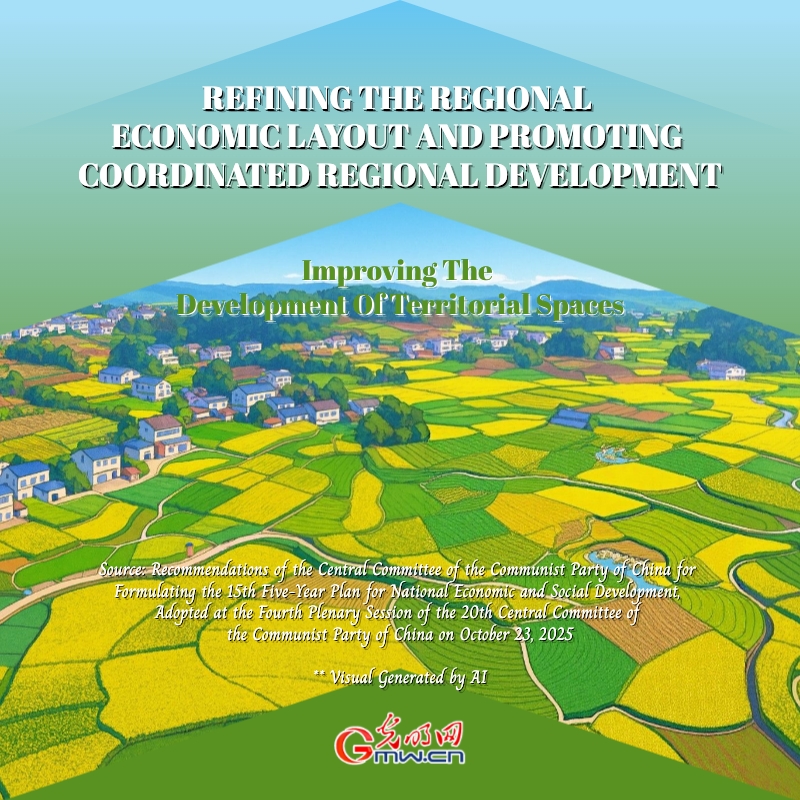
-- Improving the development of territorial spaces
We should intensify our efforts to implement the functional zoning strategy. We should keep the general layout encompassing urban zones, major agricultural production zones, and key ecosystem service zones stable, formulate detailed, specific plans for special functional zones, and refine relevant supporting policies and assessment and evaluation mechanisms. We should also work to optimize the layouts of strategic industries and energy and resource bases.
The territorial space planning system should be improved. We should enforce and refine arable land and permanent basic cropland redlines, ecological conservation redlines, and urban development boundaries, and implement differentiated and rigorous regulation on territorial space use in different regions and categories. Provincial-level governments should be given more power to manage land designated for construction purposes. We should explore an approach to keeping the total area of construction land within the limit set for each planning period and ensure the supply of land by taking stock of both existing and new land resources.
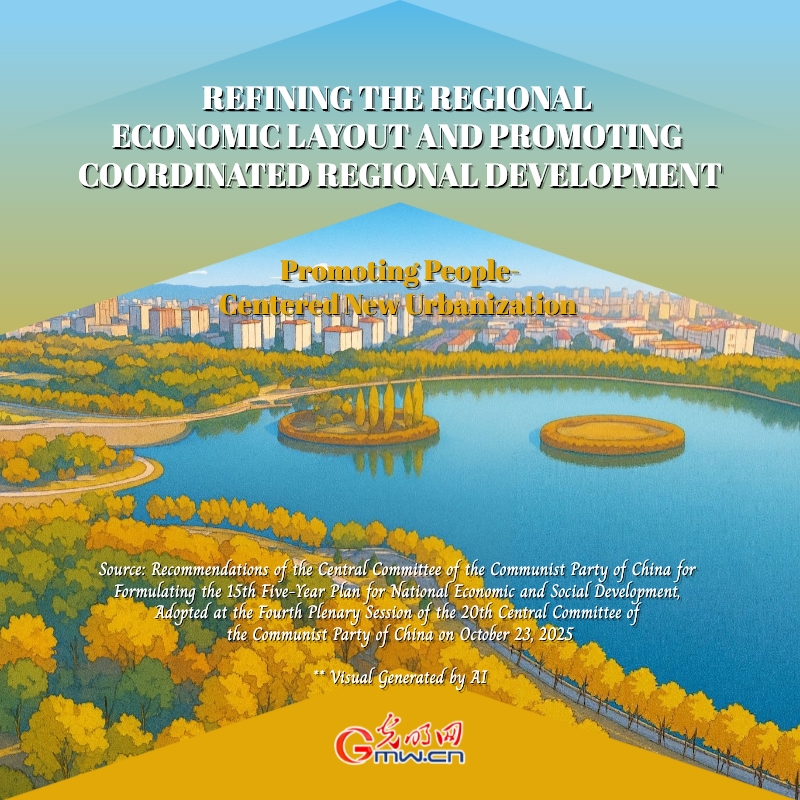
-- Promoting people-centered new urbanization
We should take well-conceived, systematic measures to grant permanent urban residency to people who move to cities from rural areas and implement systems that allow people to obtain household registration and access basic public services in their place of permanent residence. We should modernize the governance of super-large and mega cities, accelerate integrated development in city clusters and in metropolitan areas, optimize the scale and spatial structures of cities, and work to ensure that cities of different sizes and small towns develop in coordination with each other to form efficient and closely knit layouts. We should adopt a categorized approach to advancing urbanization with a focus on county seats, with the aim of better supporting industrial development and improving public services. We should continue to tap the full potential of cities, make a strong push to advance urban renewal, and build people-centered modern cities that are innovative, livable, beautiful, resilient, culturally rich, and smart. Concrete steps should also be taken to promote the development of cities and towns in border regions.
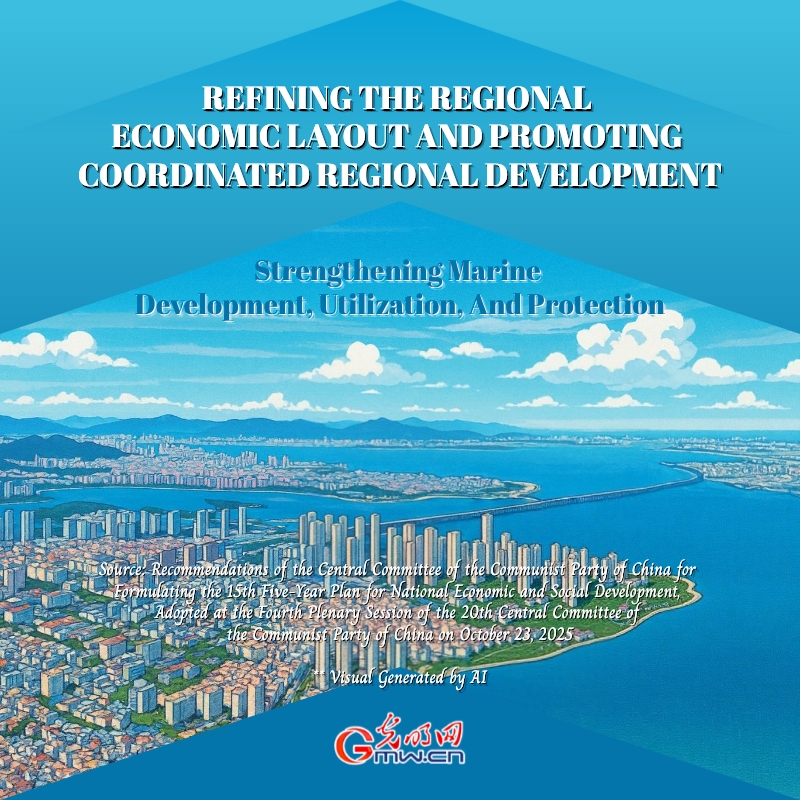
-- Strengthening marine development, utilization, and protection
We should pursue coordinated land and marine development, increase the capacity for sea management, advance high-quality development of the marine economy, and step up efforts to build China into a strong maritime country. Innovation in marine science and technology should be strengthened. We should consolidate and enhance our edge in marine equipment manufacturing, build up emerging maritime industries, and develop modern shipping services.
We should conduct marine surveys, observation, and monitoring and advance the development and utilization of marine energy and resources, sea areas, and islands. The protection and restoration of ecosystems in key sea areas should be strengthened. Systems for supporting deep-sea and polar-region expeditions should be improved. We must resolutely safeguard our maritime rights, interests, and security and improve our capacity for maritime law enforcement and judicial administration of marine affairs.
点击右上角![]() 微信好友
微信好友
 朋友圈
朋友圈

请使用浏览器分享功能进行分享
